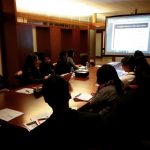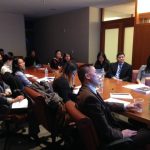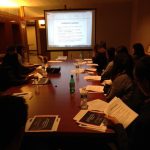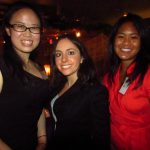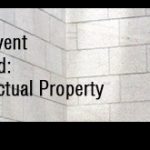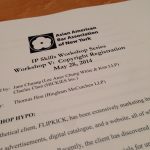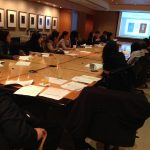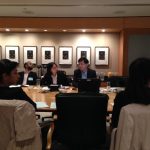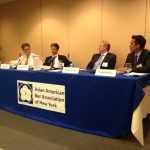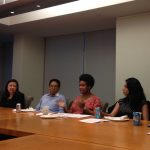Congratulations to Karen Lim on becoming a Partner at Fross Zelnick
Congratulations to Karen Lim on becoming a Partner at Fross Zelnick
Karen Lim, AABANY Director and founding co-chair of the Intellectual Property Committee, was recently named a Partner at Fross Zelnick. Please join us in congratulating her on this great achievement. The full text of the firm’s press release announcing Karen’s elevation can be found by following the link in the title.
WE ARE PLEASED TO ANNOUNCE THAT KAREN LIM has become a partner of the firm. Karen’s practice focuses on the selection, clearance, prosecution, maintenance and enforcement of trademarks in the U.S. and globally; managing worldwide trademark portfolios; and preparing agreements and licenses pertaining to intellectual property.
Wiggin and Dana Expands Intellectual Property Practice – Congrats to Sapna Palla
Wiggin and Dana Expands Intellectual Property Practice – Congrats to Sapna Palla
Congratulations to Women’s Committee Co-Chair Sapna Palla on her joining Wiggin and Dana as Partner in the Intellectual Practice Group in the firm’s New York Office. For more details, follow the link in the title to read the press release.
Jan. 22: AABANY and NYCLA present “Patents 101”


On January 22, 2014, the AABANY Intellectual Property Committee and the NYCLA Entertainment, Media, Intellectual Property and Sports Committee presented a CLE entitled “Patents 101: What Can be Protected by Patent Rights." Robins, Kaplan, Miller & Ciresi LLP hosted the event at their office at 601 Lexington Avenue. Wan Chieh (Jenny) Lee moderated the panel featuring: Sapna Palla (Counsel at Kaye Scholer), and Annie Huang (Counsel at Robins, Kaplan, Miller & Ciresi LLP). The panelists addressed the developing Supreme Court jurisprudence on the requirements for patent eligible subject matter, particularly focusing on the impact of the recent Myriad decision on the life science industry, and the highly anticipated Alice v. CLS case relating to patent eligibility of computer implemented inventions, for which oral arguments will be heard by the Supreme Court at the end of March this year. The presentation was well-received, and the audience members actively engaged in questions and discussions with the panelists. Despite the weather condititions, a total of 13 attorneys attended this event. Attendees received 1.0 credit in Areas of Professional Practice.
//static.googleusercontent.com/external_content/picasaweb.googleusercontent.com/slideshow.swf
After a full day of CLE sessions and other programs, attendees at the NAPABA Northeast Regional/AABANY Fall Conference enjoyed a cocktail reception, sponsored by Day Pitney. Attendees from AABANY and the northeast affiliates, including from Canada, met, mingled, connected and re-connected over drinks and hors d’oeuvres.
At the reception, the AABANY Law Review, which was launched at the 2011 Fall Conference, presented its first Scholarly Paper Prize to Greg Robinson (Professor of History at l’Université du Québec à Montréal) for his article, In Defense of Birthright Citizenship: The JACL, the NAACP, and Regan v. King. Prof. Robinson accepted the award and offered brief remarks about his published work, to be released in the upcoming issue of the AABANY Law Review.
Also during the reception, Key Sponsor Hudson Court Reporting and Video and Elite Sponsor Baker Tilly held drawings for prizes. Congratulations to the raffle winners, and thanks to Hudson and Baker Tilly for being such strong supporters of AABANY!
Following the reception, several committees hosted dinners: The Real Estate/Solo Small Firm Committees hosted their dinner at S Dynasty, sponsored by Bank of America. The Litigation/Young Lawyers Committees had a wonderful Italian dinner at Aperitivo. The Bankruptcy/Corporate Law Committees had their dinner at Banc Café, thanks to sponsors UBS and Donlin Recano. Thomson Reuters sponsored the Intellectual Property Committee dinner at Fusia.
Right after the committee dinners, energetic attendees convened at Rare View Rooftop for the afterparty. The attendees enjoyed drinks and each other’s company while admiring panoramic views of the New York City skyline, at least until the rain came down. Not to be deterred by the downpour, guests took the party downstairs to Rare Bar & Grill on the ground floor to continue their post-conference celebration.
We hope everyone who came to the 2013 NAPABA Northeast Regional/AABANY Fall Conference had an enjoyable and productive time. We hope to see you at the 2013 NAPABA Annual Convention in Kansas City in November!


